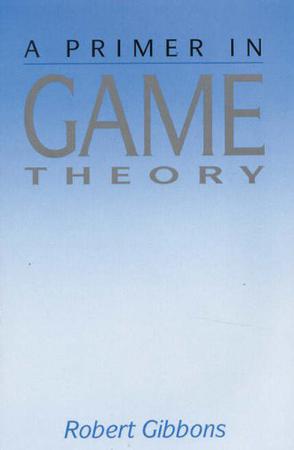-

Playing for Real
Ken Binmore's previous game theory textbook, Fun and Games (D.C. Heath, 1991), carved out a significant niche in the advanced undergraduate market; it was intellectually serious and more up-to-date than its competitors, but also accessibly written. Its central thesis was that game theory allows us to understand many kinds of interactions between people, a point that Binmore amply demonstrated through a rich range of examples and applications. This replacement for the now out-of-date 1991 textbook retains the entertaining examples, but changes the organization to match how game theory courses are actually taught, making Playing for Real a more versatile text that almost all possible course designs will find easier to use, with less jumping about than before. In addition, the problem sections, already used as a reference by many teachers, have become even more clever and varied, without becoming too technical. Playing for Real will sell into advanced undergraduate courses in game theory, primarily those in economics, but also courses in the social sciences, and serve as a reference for economists. -

A Primer in Game Theory
Game theory has revolutionized economics research and teaching during the past two decades. There are few undergraduate or graduate courses in which it does not form a core component. Game theory is the study of multi-decision problems and such problems occur frequently in economics. Industrial organization provides many examples where firms must consider the reactions of others. But there are many other areas in which it is applicable - from individual workers vying for promotion to countries competing or colluding to choose trade policies. Bob Gibbons provides an introduction to the branches of game theory that have been widely applied in economics. He emphasizes the applications as much as the pure theory. This not only helps to teach the theory, but also illustrates the process of model building - the process of translating an informal description of a multi-person decision situation into a formal, game theoretic problem to be analyzed. The approach aims to serve as both an introduction to those who will go on to specialize as pure game-theorists. It also introduces game theory to those who will later construct (or at least use) game-theoretic models in applied fields of economics.